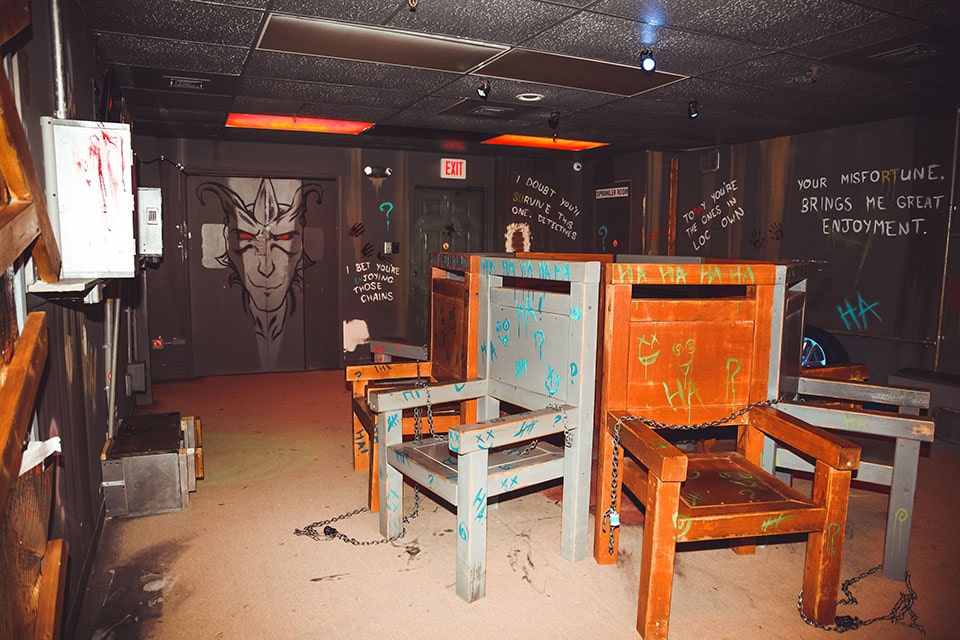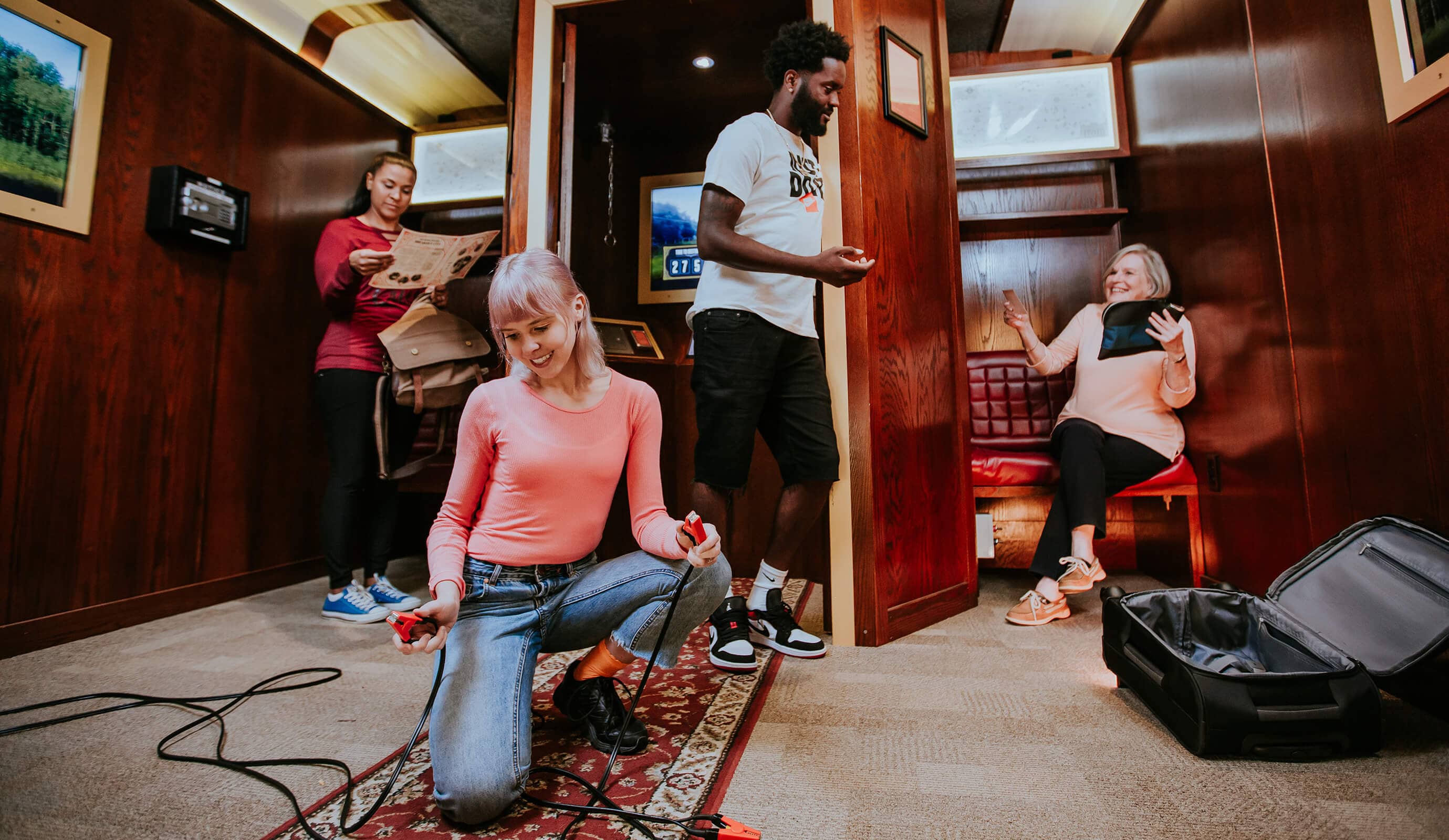Team Techniques: Exactly How to Collaborate Efficiently in a Retreat Space
Navigating the complexities of a retreat area requires greater than mere enthusiasm; it requires a well-coordinated method grounded in clear interaction, tactical function projects, and skilled time monitoring. Groups should actively pay attention to every member's insights, assign functions that align with private staminas, and keep regular check-ins to make sure focus and protect against redundancy. By fostering an environment that values cohesion and adaptability, groups can substantially enhance their efficiency and success rates. The subtleties of these techniques can transform the experience, but how specifically can they be applied to optimize the potential for success?
Establish Clear Interaction

To help with clear interaction, it is essential to mark a central point of contact for information circulation. Short, focused updates from each team member can keep the group notified without frustrating them with details.

Assign Roles Tactically
While clear communication establishes the structure for reliable team effort, appointing duties strategically guarantees that each group member's staminas are utilized properly. In a getaway space circumstance, the time-sensitive and complicated nature of difficulties demands a well-organized approach to job delegation. By identifying and leveraging individual proficiencies, groups can enhance their problem-solving capacities and improve general performance.
First, analyze the unique skills and attributes of each individual. Someone with a keen eye for information might excel in discovering concealed objects, while a sensible thinker can be better fit to solving challenges. It's equally vital to have a leader that can oversee progression, handle the timeline, and make crucial telephone calls when necessary. This duty commonly requires solid business and social skills.
2nd, make certain that duties are versatile and adaptable. As new challenges emerge, the group must have the ability to pivot, reallocating tasks as called for. This adaptability helps keep energy and protects against traffic jams that might take place as a result of rigid function tasks.
Eventually, a calculated technique to role project not only maximizes the staminas of each staff member yet additionally promotes a cohesive setting, driving the team towards an effective retreat.
Make Use Of Diverse Skills
Identifying and harnessing the varied abilities within your group can dramatically elevate your efficiency in an escape area. Each staff member brings one-of-a-kind strengths to the table, and successfully leveraging these capabilities can expedite analytic and enhance general effectiveness. As an example, a staff member with solid logical skills could succeed at figuring out complicated codes or patterns, while one more with keen empirical capabilities might rapidly identify covert clues that may ignore.
Efficient interaction is essential to utilizing these varied abilities. Motivate team members to voice their insights and concepts quickly, making sure that all possible solutions are considered. This inclusive approach fosters a dynamic setting where creative thinking and vital reasoning can grow. Furthermore, appointing jobs that align with each participant's toughness can protect against visit this page bottlenecks and ensure that progress is continuous.
Moreover, diversity in skills frequently translates to variety in assuming Recommended Reading designs, which is vital in a getaway room setting. While some obstacles might call for logical thinking and precision, others might profit from creative and association of ideas. By identifying and leveraging this diversity, groups can attend to a wider series of obstacles better, thereby raising their possibilities of a successful retreat.
Manage Time Efficiently

Determine visible problems and separate jobs based on team participants' staminas, making certain that no one is still. This practice can aid keep the group focused and protect against time from sliding away unnoticed.
Additionally, stay clear of one-track mind. If a challenge is taking also long, rotate staff member or go on to one more challenge, returning later with fresh viewpoints. Communication is critical-- keep everyone upgraded on resolved problems and staying tasks to stay clear of redundant initiatives.
Lastly, utilize any Homepage kind of hints or hints sparingly however tactically - best escape room. Recognizing when to ask for aid can conserve beneficial time. By adhering to these time monitoring principles, teams can dramatically improve their opportunities of a successful and satisfying escape area experience
Debrief and Reflect
Representation is a vital aspect of group development and enhancement in the context of retreat areas. When the challenge is completed, whether effectively or not, it is essential for the group to participate in a structured debriefing session. This procedure permits team participants to examine their efficiency, determine staminas, and determine locations for enhancement.
Start the debrief by discussing what went well. Highlight particular circumstances of efficient interaction, analytical, and cooperation. Recognizing these favorable actions reinforces them and encourages their repeating in future difficulties.
Talk about moments of confusion, miscommunication, or inadequate approaches. Urge an open and positive discussion where group members can share their perspectives without fear of criticism.
Conclusion
To conclude, effective cooperation in a retreat space is asserted upon clear communication, strategic role jobs, the reliable use of varied abilities, and competent time administration. Routine check-ins and organized debriefings are essential for preserving focus and cultivating constant improvement. By developing a natural and adaptive team setting, the probability of efficiently addressing puzzles and attaining the goal of leaving the space is considerably enhanced. This technique not only makes sure success however additionally promotes collective growth and knowing.